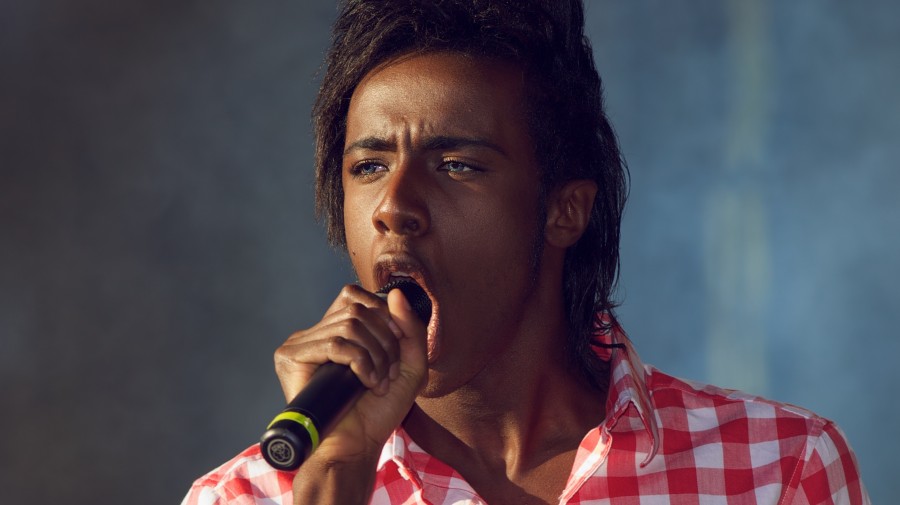Back in 2011, Mohamed Abdi Farah, who goes by the stage name Mo, seemed to be Norway’s next rising pop star. Success on his country’s version of The X Factor led to a record deal and the release of several singles, all before his 18th birthday. But then, Mo found himself in the middle of a national nightmare: a mass shooting on the Norwegian island of Utøya.
There’s something a little ethereal about Mo. He’s dark-skinned, but — thanks to some striking contact lenses — blue-eyed, with hair that is both short and long and a big laugh that belies a life filled with tragedy.
Mo came to Norway with his mother at the age of 7 to escape the civil war in Somalia, a conflict that cost most of his family their lives.
“I don’t remember so much about it,” he says. “But I don’t want to go into that sad stuff.
Nor does Mo like to talk about Utøya, where, in 2011, he and hundreds of politically active young people were targets in the shooting rampage of a right-wing extremist named Anders Breivik. Mo escaped, but his best friend — whom he’d met in a refugee camp as a child — was among the 69 people murdered.
What Mo will say about the tragedy is that there’s one song that helped him get through it.
“Heal” was written for Mo before the shooting took place. It’s not that the song holds any secret cure for grief; it’s essentially about having patience. But that’s what worked.
“I really connected with the message behind the song, especially after all the things I went through over the years,” he says. “I took a break and I finally feel ready to move on and to just be me again.”
And for Mo, a lifelong performer, that means getting back on stage. Soon, he’ll compete against 14 other Norwegians for the chance to represent his country at Eurovision, that glittery tribute to song that, for a few days each year, seeks to unite Europe around a musical popularity contest.
Laila Samuelson, who wrote “Heal” for Mo, admits it’s not a typical Eurovision entry.
“I mean, the sound is darker, and also the beat is slower than the usual winning song of the whole thing,” she says.
And although some discourse will inevitably tie the song to Utøya, Samuelsen says that’s become something of a taboo subject in Norway these days.
“It’s not cool to bring up in any political discussion,” she says. “So it really kind of now feels like people are really afraid to talk about it.”
And starting a public discussion about Norway’s national tragedy was never the point. Mo says the song is meant to be much more universal.
“Everyone that lives in this world, they have gone through a thing or two,” Mo says. “And so when they listen to this song it could inspire them to just get right back there and don’t lose their strength, and just never give up.”
When it comes to Eurovision, it’s about the performance as much as the song — and that is likely to be a major point in Mo’s favor.
“My strength, being an artist, is that I’m real. And I just pour my heart out,” he says. He adds, “Mo style,” and that big laugh returns.
9(MDAxNzk1MDc4MDEyMTU0NTY4ODBlNmE3Yw001))


